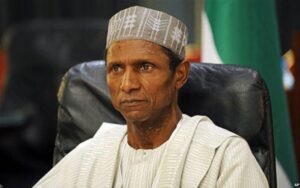As Nigeria navigates its democratic journey, reflections on its economic stability under military rule offer crucial insights. While military regimes often prioritize centralized power, their economic management is marked by mixed results.
The experience underscores the importance of democratic institutions in fostering sustainable economic growth.
During military rule, Nigeria witnessed periods of economic growth, primarily driven by oil revenues. However, mismanagement, corruption, and lack of accountability led to significant disparities and widespread poverty.

The absence of transparent governance structures hindered long-term development, highlighting the inherent risks of authoritarian rule.
Conversely, democratic governance allows for checks and balances, promoting accountability and transparency. While challenges persist, such as political instability and corruption, democratic institutions provide avenues for public participation and oversight.

Economic policies can be debated, refined, and implemented with broader societal input, enhancing their effectiveness and legitimacy.
Nigeria’s transition to democracy signals a commitment to inclusive governance and economic stability. By learning from past mistakes and embracing democratic principles, Nigeria can chart a path towards sustainable development.
Strengthening institutions, promoting transparency, and encouraging civic engagement are crucial steps in building a resilient economy that serves all Nigerians.

The examination of economic stability under military rule offers valuable lessons for Nigerian democracy.
While authoritarian regimes may deliver short-term gains, the long-term prosperity of the nation hinges on democratic governance and inclusive economic policies.
Nigeria’s future success lies in its ability to uphold democratic values while addressing the complexities of economic development.




